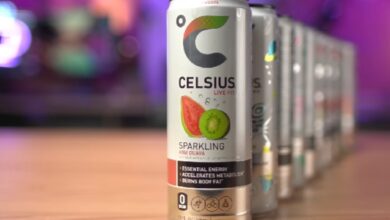Somisomi Nutrition Facts
Somisomi nutrition facts kick off a fascinating journey into the heart of this delectable Korean treat. Diving into this article will unravel the mystery surrounding its unique composition, promising a read as delightful and surprising as the dessert itself.
Somisomi is a popular dessert chain known for its Korean-inspired soft serve and Taiyaki—a fish-shaped pastry traditionally filled with red bean paste but available with various other fillings. Somisomi’s unique offerings have made it a go-to spot for sweet treat enthusiasts across the United States. However, as delicious as these desserts are, it’s important to understand their nutritional content to make informed choices.

Introduction
When indulging in sweet treats like Somisomi’s famous soft serve and Taiyaki, it’s essential to balance the enjoyment with an understanding of the nutritional facts. Knowing the ingredients and caloric content can help you enjoy these desserts responsibly. This comprehensive guide will delve into the nutritional aspects of Somisomi’s menu, offering insights into the calories, fat content, and potential allergens, along with helpful tips for those with dietary restrictions.
Whether you’re a regular customer or a first-time visitor, this article will provide you with everything you need to know about Somisomi’s nutritional facts.
Nutritional Overview of Somisomi’s Menu
Soft Serve Ice Cream
SomiSomi offers a variety of soft serve flavors, including matcha, ube, black sesame, and milk. Here’s what you can expect in terms of nutrition:
- Serving Size: Typically, a standard serving size of Somisomi soft serve is about 150 grams.
- Calories: A serving generally ranges between 150 to 300 calories, depending on the flavor and any added toppings.
- Fat Content: Expect around 5 to 10 grams of fat per serving, with a mix of saturated and unsaturated fats.
- Sugar: Soft serve is a high-sugar treat, with around 20 to 30 grams of sugar per serving.
- Protein: Each serving provides about 3 to 6 grams of protein, mainly from the milk used in the base.
Taiyaki (Fish-Shaped Pastry)
The Taiyaki served at Somisomi comes with various filling options such as custard, Nutella, red bean, and taro. Each filling has its own nutritional profile:
- Serving Size: Each Taiyaki weighs around 80 to 100 grams.
- Calories: Depending on the filling, a Taiyaki can range from 150 to 250 calories.
- Fat Content: Taiyaki contains about 5 to 8 grams of fat, largely depending on the filling.
- Sugar: The sugar content is typically high, around 15 to 25 grams, especially for sweeter fillings like Nutella or custard.
- Protein: Each Taiyaki provides about 2 to 4 grams of protein.
Dietary Considerations
Allergens
- Dairy: Both the soft serve and Taiyaki contain dairy, which is crucial for those who are lactose intolerant or have a dairy allergy.
- Gluten: The Taiyaki pastry is made from wheat flour, making it unsuitable for those with gluten intolerance or celiac disease.
- Nuts: Some flavors and fillings may contain nuts or be processed in facilities that handle nuts, posing a risk for those with nut allergies.
Vegan and Gluten-Free Options
While traditional offerings at Somisomi are not vegan or gluten-free, some locations may offer alternative options. However, it’s always best to inquire directly at the store about specific dietary needs.

Frequently Asked Questions
Are Somisomi desserts high in calories?
Yes, Somisomi desserts are typically high in calories due to their sugar and fat content. Soft serve ice cream ranges from 150 to 300 calories per serving, while Taiyaki ranges from 150 to 250 calories depending on the filling.
Does Somisomi offer any low-sugar or low-fat options?
Currently, Somisomi does not specifically market low-sugar or low-fat options. However, portion control can help manage caloric intake.
What are the main allergens in Somisomi’s menu?
The primary allergens include dairy, gluten, and potentially nuts, depending on the specific product and location.
Conclusion
Somisomi offers a delightful array of desserts that are as indulgent as they are unique. Understanding the nutritional content of these treats can help you make better choices, whether you’re enjoying them as an occasional indulgence or looking for something that fits into your dietary preferences. Always remember to check with the store for the most accurate and up-to-date information, especially if you have specific dietary needs or allergies.





